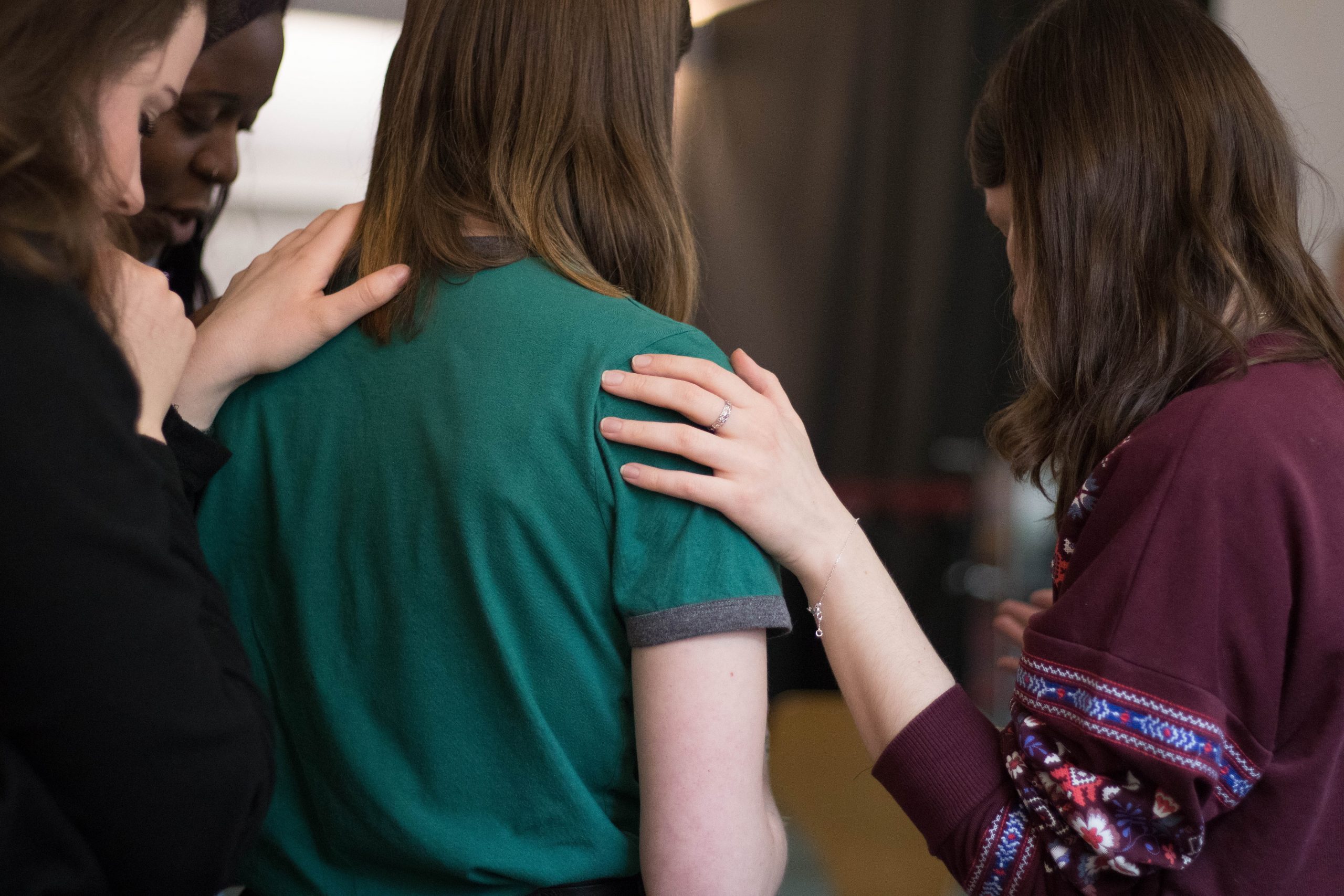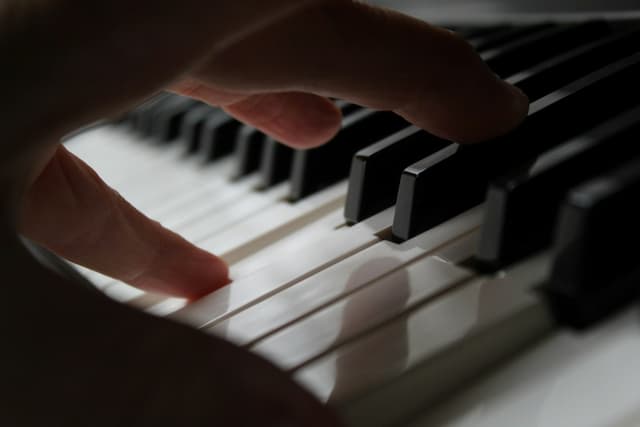The Healing Power of Prayer

Share good news – Share this page freely
Copy and share this link on your media, eg Facebook, Instagram, Emails:
Renewal Journal 4: Healing:
https://renewaljournal.com/2014/12/02/healing/
These Articles are now added to Renewal Journal 4: Healing
The Stunning Science behind the Healing Power of Prayer
Article written by Dr. Don Colbert. Dr Colbert graduated from Oral Roberts Medical School in 1984. Dr. Colbert has practiced medicine in Central Florida and has been board certified in Family Practice for over 25 years.
Even a mere 30 seconds of prayer, acknowledging God and giving thanks for all the blessings in your life, can have a powerful effect on your body, mind, and spirit.
If you have a regular practice of prayer, then you are well aware that benefits are very real and wide-ranging. Many people who engage in these activities report psychological and spiritual benefits such as a sense of greater clarity, purpose, gratitude, presence, sense of connection, and overall well-being. However, these sorts of subjective benefits can be hard to measure scientifically. Interestingly, despite the difficulty in quantifying the spiritual effects of prayer, there have been many studies looking at the physical benefits of this ancient practice. A 2013 Pew Research Poll estimated that over half of Americans pray daily.
A University of Rochester study found that over 85% of people dealing with a major illness turn to prayer.
Every religion or spiritual belief system has a form of prayer or meditation as a foundational principle. This shows that prayer is not merely a cultural phenomenon but a fundamental aspect of the human experience. Yet, many people still struggle to reconcile belief in the power of prayer with a scientific worldview. Duke University’s Harold G. Koenig, M.D, author of several books on faith and healing, says “studies have shown prayer can prevent people from getting sick, and when they do get sick, prayer can help them get better faster. So how does that happen? Harvard Medical School cardiovascular specialist Dr. Herbert Benson discovered what is called the “relaxation response.”
This is the physiological state that occurs during prayer. It involves the autonomic (automatic) nervous system shifting over to a parasympathetic (rest and digest) dominant state, as opposed to the sympathetic (fight, flight, freeze) state that most of us spend the majority of the day in. The act of prayer has shown to increase certain helpful neurotransmitters, such as dopamine, which help promote a state of relaxation, focus, motivation, and well-being. But the effects are not confined to momentary relaxation. Long-term prayer can actually rewire and rebuild the brain! With the ability to scan the brain using magnetic resonance imaging (MRI), researchers have been able to note the physiological changes that occur in the brains of those who pray regularly.
Lisa Miller, professor and director of Clinical Psychology and director of the Spirituality Mind Body Institute at Teachers College, Columbia University conducted a study on 103 people who were at a high risk of depression. Using MRI, she found that those who prayed regularly tended to have a thicker cerebral cortex which has been associated with less depression and anxiety. Another study has shown that urban children with asthma cope better when incorporating prayer into their lives. Prayer is also good for your heart. Christians have been shown to have lower average blood pressure than non-believers. Prayer also is correlated to less heart attacks and quicker recovery from heart surgery. There is even evidence to suggest that regular prayer will help you live longer! So with all these benefits, you should consider incorporating prayer as part of your daily regimen.
A study published in the journal Sociology of Religion titled “Prayer, Attachment to God, and Symptoms of Anxiety-Related Disorders among U.S. Adults,” looked at the data of 1,714 volunteers. What they found is that those who pray with a loving and protective conception of God experience a more dramatic reduction in anxiety related symptoms compared to those who pray without the expectation of comfort or protection. This shows us just how important faith actually is! The publishers believe that the emotional and spiritual comfort from prayer to a loving and compassionate God offers a sense of hope and security while praying with a more judgmental conception of God breeds resentment, rejection, and detachment. So understanding the character of your God is important.
The most beautiful thing about all of this research is not only that it validates the ancient wisdom behind prayer, but it also shows us how incredibly easy it can be to implement powerful healing practices into our lives. With so many benefits on the physical, psychological, and spiritual levels, there is really no reason to not pray or meditate every single day!
The best times of day are first thing in the morning and right before bed. However you can pray in the car on the way to work, in line at the grocery store, sitting in the waiting room at the doctor’s office, or before you eat your meals. Even a mere 30 seconds of prayer, acknowledging God and giving thanks for all the blessings in your life, can have a powerful effect on your body, mind, and spirit. So what do you think? Have you been inspired to reinvigorate the prayer in your life?
Source: Breaking Christian News (bold font added)

Israeli Research Shows Prayer is Good for the Body as Well as the Soul
An Israeli study has found that praying regularly can reduce the risk of developing Alzheimer’s disease by 50%. The study, which was funded by the National Institute of Health in Washington, D.C., found that women, who have a significantly larger chance of developing forms of dementia, could stave off the disease through prayer. The findings confirm earlier studies that indicated religion can play a positive role. “We found that people with higher levels of spiritual well-being had a significantly slower progression of Alzheimer’s disease,” Yakir Kaufman, the head of the neuropsychiatric department at Herzog hospital in Jerusalem said.
The Israeli organization Melabev has ten centres serving about 600 Alzheimer’s patients for whom prayer is part of the daily routine. “If prayer is done in a centre or a religious facility, it is communal and there is a social aspect,” Susan Sachs, the director of public relations and development at Melabev said. “It gives hope and perspective, and for many people it helps retain their dignity. They’re doing something that they did all their lives.” Melabev provides an alternative to institutionalizing Alzheimer’s patients by providing a full day of activities. Sachs estimates there are 100,000 people suffering from the disease in Israel.
The centres provide them with laminated cards with the most popular prayers printed in large type, although many of the patients rely on memory, which also helps strengthen their cognitive function. While prayer has some cognitive elements, it strengthens emotional functioning even more. As the patient’s cognitive function declines, his or her emotional function may be strengthened, according to Leah Abramowitz, the head of the Institute for the Study of Aging at Melabev. She said that, “It’s like a baby who can feel his mother’s emotions and will start crying if she is angry or tense. It’s like the person who is fully blind having more acute hearing.”
Prayer can also lower stress levels – one of the risk factors for Alzheimer’s. Other risk factors include high blood pressure, heart disease and diabetes. As people live longer, there is more chance that they will develop dementia. Israel’s life expectancy – 80 years for men and 84.2 for women – is the world’s fourth-highest, exceeded only by Japan, Hong Kong and Switzerland. Professor Rivka Inzelberg of Tel Aviv University, who led the research, told a conference that the study indicated that 50% more women than men suffer memory impairments. She said “rituals, like prayer, are especially comforting to Alzheimer’s patients. Prayer is something that went into their long term memory many years ago. It is a ritual that is very comforting for them.”
Source: The Media Line
Renewal Journal, 2017

How I Learned to Pray for the Sick
This article is a result of my search for effective ways of praying for the sick. I found it produced results after persisting in hope and faith. At first, it was mostly in hope. I know that God answers prayer, but we don’t always know how. Gradually my faith grew as I persisted in faith, believing that God answers prayer and that God heals. The tide changed and waves of healing blessings flowed more fully.
When I was young, we prayed for the sick in general terms, such as “Please God, heal Mr or Mrs So-and-so. Amen.” Generally the people we prayed for seemed to improve and sometimes we saw rapid improvement.
Then I discovered intimacy with God and the power of his Spirit, the Spirit of Jesus, in new ways. Jesus told us to seek this: “If you then, being evil, know how to give good gifts to your children, how much more will your heavenly Father give the Holy Spirit to those who ask Him!” (Luke 11:13). We all need to ask, seek and knock, and Jesus promises that we will receive, find and have the door opened (Matthew 7:7-8).
So my journey in praying for others, including praying for the sick, began to change as I allowed the Holy Spirit to guide me more fully. Instead of praying the same old way, “Please God, heal that sick person,” I began praying the way I was led by the Spirit.
As I read about Jesus and his disciples, I realized that they rarely or never prayed this way, “Please God heal that sick person.” Mostly they commanded healing, and Jesus’ followers always did so in Jesus’ name. Jesus has all authority in heaven and on earth, and we have authority as we serve him and pray in his name, on his behalf.
That gradually opened new horizons for me! I began listening more to the still, small voice in my mind and heart, and found I was praying with more authority, in Jesus’ name. Increasingly I found myself led to pray, “Be healed, in Jesus’ name.”
As I persisted, the Holy Spirit quietly prompted me to take authority over attacks against the person. Sometimes (not automatically and not always) I was led to pray something like “Infirmity, get out in Jesus’ name.”
Increasingly I found more people reported that pain had gone or that they felt significantly improved. So then I realized that it helped to ask the person being prayed for how they felt. If some pain remained, I was often led to pray for them again, sometimes more than once more.
As first I was reluctant to ask how the person felt, in case there was little or no improvement! Then, gradually I realized that asking how they felt actually gave more opportunity to pray more if that was needed. When we persisted, we often saw improvement right there and then. A simple way to check is to ask, “How much pain do you have on a sale of 10 to 1?”
Blockages
Many blockages in my thinking stopped me from praying with authority. Here are a few.
- Not good enough. That can stop us. We think we’re not good enough for God to work in and through us. “No one is good but One, that is, God” (Mark 10:18). If you wait till you’re perfect, you’ll be in heaven! Confess sin quickly and gratefully move on, because the blood of Jesus Christ, God’s Son, goes on cleansing us from all sin (1 John 1:7).
- Fear of failure. What if the person is not healed? That is a common blockage because sometimes there is no evidence of immediate healing. I began saying, “We’ll keep on trusting God for more healing, however it may come.” As we persisted in faith, there seemed to be more healing, more often.
- No healing gift. There are many gifts of healings (1 Corinthians 12:9), and some people have a gift of faith for healing – they just expect it. I think I had more hope than faith. But we can all pray for healing, even if we don’t have healing gifts.
- We all experience disappointment sometimes when we pray for healing. Healing does not always happen, or it may be slow in coming. But we can persist, just as we do with medical treatments. We persist till healing comes.
- No leading. What if you have no leading on how to pray? That happens at times. You can still pray in faith, knowing God hears and will answer in his way and in his time.
What helped me to overcome blockages?
God’s Word helped me most. The more I read about Jesus and his followers the more my faith grew. God’s Spirit speaks his word into our hearts and lives. We believe it and act on it.
Listening more for the leading of God’s Spirit helped me enormously. Note that “It is the Spirit who gives life; the flesh profits nothing” (John 6:63) and that “the letter kills, but the Spirit gives life” (2 Cor. 3:6). Often, a ‘hunch’ turned out to be a ‘leading’.
One night I prayed for a young relative who had been getting migraines. Medications had helped, but migraines persisted. I had a hunch we were dealing with an attack, so I was led to gently place my hand on his head and pray, “Affliction, get out in Jesus’ name.” I felt it go, and my young relative felt fine and has not needed medication for that since then. We don’t always ‘feel’ something, but we can pray in faith.
Why lay on hands?
Why do we lay hands on the sick to pray for them? It’s biblical. See Mark 6:5; 7:32; 10:16; 16:18; Luke 4:40; 13:13; Acts 28:8. It’s also a natural way to express care and concern. All parents know that touch brings comfort when a child is hurt.
Biblical passages taught me to persist. Here are some: Matthew 7:7-11; Luke 11:5-10; 18:1-8; 1 Thessalonians 5:17. Jesus occasionally prayed for or commanded healing more than once, as for the blind man at Bethsaida (Mark 8:22-25) and the wild man of Gadara (Luke 8:26-39).
Ultimate healing and the only total healing is in heaven. Meanwhile, in this broken world we can show compassion and care in many ways, including praying for healing. I know the pain of praying for a loved one’s healing, who died. Sometimes the healing is not here, but hereafter.
Sometimes God may surprise you, as you persist in simple faith. A nurse in one of our prayer groups was led to place her hand on a lady’s back and pray, “L4 be healed, in Jesus’ name.” The pain left immediately. Apparently the problem was in the lumbar (L4 region) of the spine.
A doctor, and my college class, once prayed for and laid hands on a lady student who was scheduled for an operation to remove a growth in her abdomen. Later that same day her specialist could find no growth, so they cancelled the operation.
Recently we prayed as a small group for a man with diabetes problems. When he had a blood test it registered normal, so he testified in church and gave thanks to God.
Healing is not always so quick. But it’s always a blessing to pray for one another. Sometimes it helps to pray in a believing group where those praying contribute their different spiritual gifts and insights. You can pray in the Spirit and often receive the Spirit’s leading on how to pray with authority in Jesus’ name.
Many people discover that God is real and personal, and they believe in him because someone prayed cared and prayed for their healing. We pray – God heals.
I pray that you will find peace and joy as you pray in faith for others, led and empowered by God’s Spirit. Just bless them in Jesus’ name.
Geoff Waugh, Renewal Journal, 2017
Now added to Renewal Journal 4: Healing – renewaljournal.com

Prayer ~ Good for the Body as well as the Soul

How I Learned to Pray for the Sick

The Life of Jesus: History’s Great Love Story – Blog
The Life of Jesus: History’s Great Love Story – PDF
Jesus healed, as did his followers.




